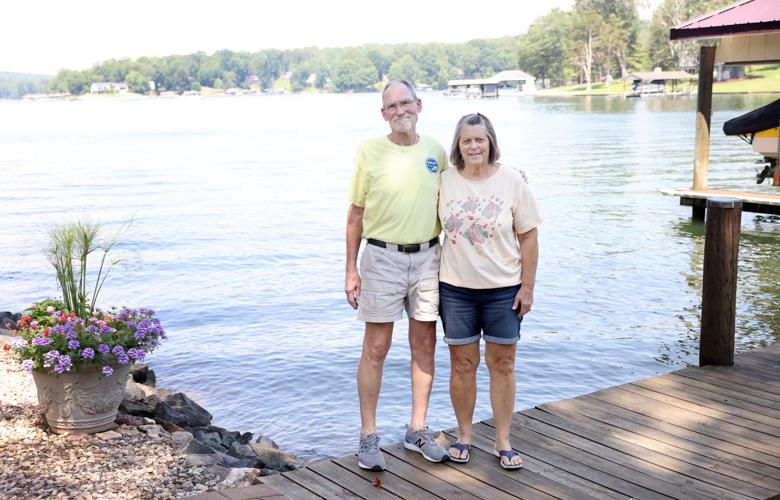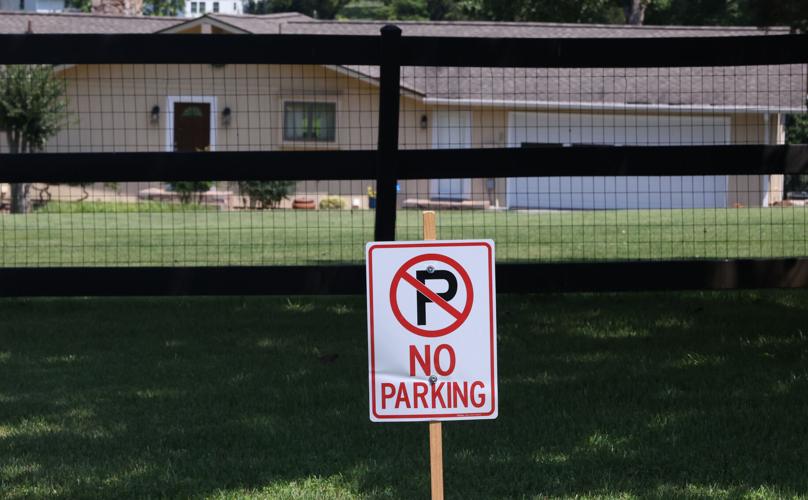MONETA — Short-term rentals have become big business in Franklin County. As it grows in popularity, the county and neighbors are seeking to reign in some of the unwanted aspects of an industry that is largely self-regulated.
Growth of the industry can be measured in the Franklin County’s transient occupancy tax. The rate is paid by a visitor for lodging over any period less than 30 days and is currently set at 7% of the total amount paid.
In 2014, the county collected $86,000 in transient occupancy tax for the year. The amount jumped to $409,000 in 2024 and the county is on pace to collect a similar amount this year.
Smith Mountain Lake is the main location for short-term rentals in Franklin County. One reason for the popularity is due to there being a lack of hotel options on and around the lake, forcing vacationers to search for lodging on sites like Airbnb or Vrbo.
People are also reading…
“The number fluctuates because they come on and off the market,” said Bill Raney, development review manager for the Franklin County Planning Department. “We are around 270 right now.”
With the growth of renters, Franklin County has worked in recent years to get a better grasp on the industry. In 2020, the county required short-term rental owners to register their homes with the county. With the registration, which cost $200, the county also inspects the home to assure it has a working fire extinguisher, smoke detectors and all sleeping areas have an emergency egress.
“It’s as much a peace of mind for them as it is the county,” Raney said of the inspections.
Franklin County also hired third-party consultant Granicus to search out listings on Airbnb, Vrbo and other vacation rental websites for listings in Franklin County that might not have registered. That information is then sent to the county, which will send out letters to anyone who is in violation by not registering.
Raney said in the early days of the requirements for registration or inspection, many short-term renters didn’t know about it. In recent years, he said the renters have gotten used to the process and will often set up inspections in the weeks leading up to the summer season.
The growing industry has come with some headaches. Over the years, Bedford County was seen as the side of the lake for short-term rentals. Some lakefront homeowners on the Franklin County side have said they chose the area because of the belief that short-term rentals were not allowed.
Lisa Cooper, planning director for Franklin County, said there has been some confusion in the past on whether short-term rentals were allowed in the county. They are allowed in areas of Franklin County zoned Residential Planned Development and Planned Commercial Development. They are also allowed in A1 or Agricultural zoned areas when a special-use permit is granted by the county’s board of supervisors.
Short-term rentals are not allowed in all other zoned areas of the county. Cooper said a homeowners’ association may also ban short-term rentals in zoning where it is allowed, but the county does not have the authority to regulate it.
Franklin County code states that anyone attempting to operate a short-term rental in areas where it is not allowed is first sent a “courtesy letter” by the county, according to Cooper. After 15 days, if no action is taken, the county code states they will send a violation letter. A second violation letter is sent if renting continues after 15 days. If a renter fails to respond, an enforcement letter is sent letting them know they will be taken to court.
Raney said those who operated short-term rentals in areas where it is disallowed are also fined $100 every 10 days. Those fines max out at $3,000, he added.
With some short-term renters charging $1,500 or more a night to stay at the home, there has been some concern that fines need to be higher. Lorie Smith, Gills Creek District representative on the Franklin County Board of Supervisors, said the county is looking into increasing fines to help in curbing those renters who break the rules.
“We are going to have to make our penalties mean something,” Smith said. “People are willing to break the rules.”
Raney said the county does have a final step of going to a judge to file an injunction to stop them if a short-term rental continues to operate in an area where it is not allowed.
“We’ve never had to take it that far,” Raney said. “Everyone has come into compliance or stopped renting so far since we have been more proactive.”
Moneta residents Alice Hitt and Merritte Jones have been dealing with a short-term rental situation in an area where it is not allowed. Their neighborhood is zoned R1 Residential, a category that prohibits short-term rentals.

Merritte Jones and Alice Hitt have retired to a home at Smith Mountain Lake, and are seen on their dock on Thursday.
Jones said they decided to buy a home in Franklin County in 2014 because they were specifically trying to avoid living near short-term rentals. They thought they were living in a quiet neighborhood until 2023 when they started noticing new people and new vehicles in the driveway each week at a neighbor’s home.
Hitt said the visitors bring additional traffic along their private gravel road along with more noise from loud music and fireworks. Visitors have also parked on their property, forcing them to put up no parking signs.

Merritte Jones and Alice Hitt added “No Parking” signs outside their home in Moneta in response to a short-term rental situation nearby. The couple is concerned about excess traffic on the private dirt road.
One of their biggest concerns is the home’s septic system which they believe has not been upgraded since the 1970s. They said the number of people staying at the home each week exceeds what that private septic system was originally intended for and it could be catastrophic if it were to fail so close to the lake.
“It was built for part-time houses,” Jones said of the septic system. “If you have a place that is using that much water, it is really putting a stress on the system.”

Merritte Jones and Alice Hitt are upset with a next-door neighbor who they say is providing their home for short-term rentals illegally since it is not allowed in the zoning where they live.
Hitt said they have been in contact with Franklin County for the past two years in an effort to stop the short-term rentals. They have provided detailed information and pictures on the short-term rentals to the county. So far, short-term rentals have continued each summer.
Cooper said they cannot speak on any specific cases they are looking into. They have spoken with Hitt and Jones in the past two years and are looking into it.
Raney admitted there are some short-term renters who try to find ways to avoid detection by the county. Rentals more than 30 days are not considered short-term. He said some home owners will advertise online for 31-day stays, then negotiate a shorter stay offline when contacted by a renter.
Raney said their office inspects any complaint received about short-term rentals in areas where it is allowed and works to verify if someone is doing it in a part of the county where it is not allowed.
“Our ultimate goal is to have everyone in compliance,” Raney said.
Smith said she is not against short-term rentals in her district, but has apprehensions about where they should be allowed. She questioned if short-term rentals should be allowed in a neighborhood where homes are close together.
According to Smith, a short-term rental is a business that doesn’t exactly fit in a residential neighborhood no matter the zoning. She would rather see short-term rentals in homes that have more open space away from neighbors who may be bothered by the transient visitors.
“It’s got to be the right place for the right reason,” Smith said of short-term rentals.
















